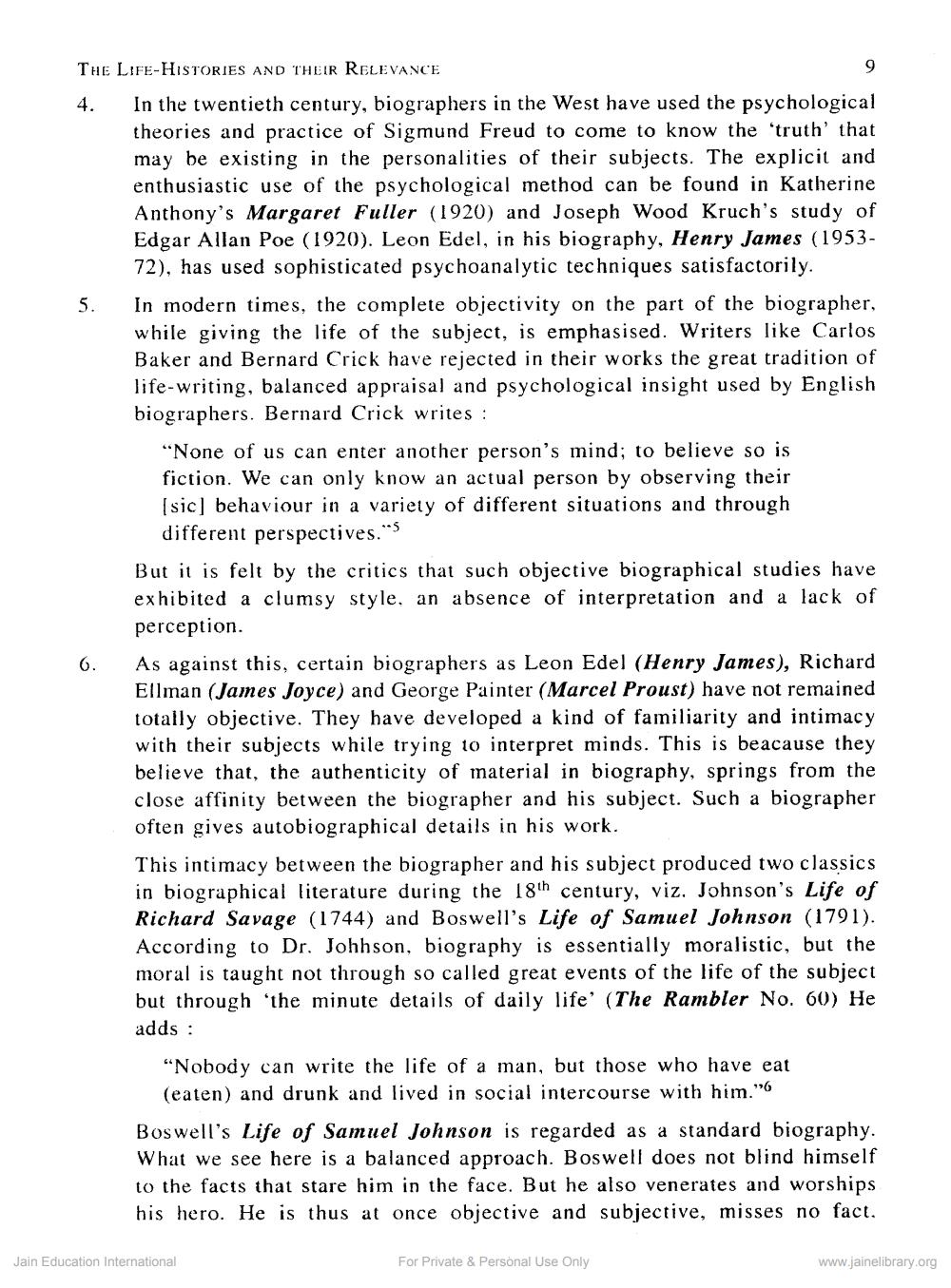________________
THE LIFE-HISTORIES AND THEIR RELEVANCE
4.
In the twentieth century, biographers in the West have used the psychological theories and practice of Sigmund Freud to come to know the 'truth' that may be existing in the personalities of their subjects. The explicit and enthusiastic use of the psychological method can be found in Katherine Anthony's Margaret Fuller (1920) and Joseph Wood Kruch's study of Edgar Allan Poe (1920). Leon Edel, in his biography, Henry James (195372), has used sophisticated psychoanalytic techniques satisfactorily.
5.
6.
In modern times, the complete objectivity on the part of the biographer. while giving the life of the subject, is emphasised. Writers like Carlos. Baker and Bernard Crick have rejected in their works the great tradition of life-writing, balanced appraisal and psychological insight used by English biographers. Bernard Crick writes:
"None of us can enter another person's mind; to believe so is fiction. We can only know an actual person by observing their [sic] behaviour in a variety of different situations and through. different perspectives."5
9
But it is felt by the critics that such objective biographical studies have exhibited a clumsy style. an absence of interpretation and a lack of perception.
As against this, certain biographers as Leon Edel (Henry James), Richard Ellman (James Joyce) and George Painter (Marcel Proust) have not remained totally objective. They have developed a kind of familiarity and intimacy with their subjects while trying to interpret minds. This is beacause they believe that, the authenticity of material in biography, springs from the close affinity between the biographer and his subject. Such a biographer often gives autobiographical details in his work.
This intimacy between the biographer and his subject produced two classics in biographical literature during the 18th century, viz. Johnson's Life of Richard Savage (1744) and Boswell's Life of Samuel Johnson (1791). According to Dr. Johhson. biography is essentially moralistic, but the moral is taught not through so called great events of the life of the subject but through the minute details of daily life' (The Rambler No. 60) He adds:
"Nobody can write the life of a man, but those who have eat. (eaten) and drunk and lived in social intercourse with him."
Boswell's Life of Samuel Johnson is regarded as a standard biography. What we see here is a balanced approach. Boswell does not blind himself to the facts that stare him in the face. But he also venerates and worships his hero. He is thus at once objective and subjective, misses no fact.
Jain Education International
For Private & Personal Use Only
www.jainelibrary.org




